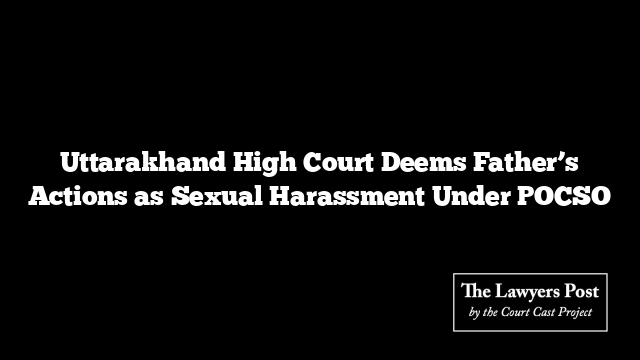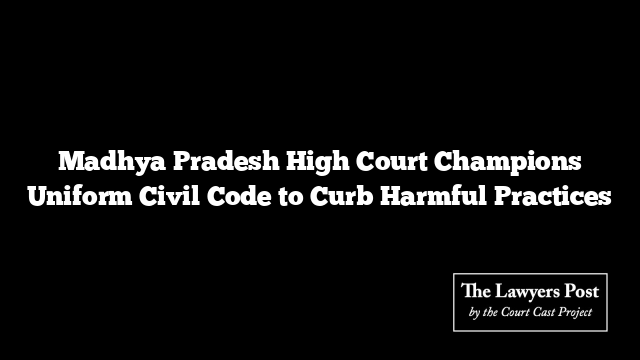A father exposing himself and showing explicit films to his child is considered a violation under the Protection of Children from Sexual Offences Act (POCSO), the Uttarakhand High Court has declared.
Justice Ravindra Maithani upheld a trial court’s decision to summon the father, charging him under Sections 11 (enticement of a child for pornographic purposes) and 12 (sexual harassment) of the POCSO Act for alleged sexual harassment of his son.
The court’s findings were based on the child’s testimony, stating his father engaged in “Gandi Gandi Cheeze” (dirty things) and showed him inappropriate videos. The judge concluded that these actions clearly constituted an offence under the POCSO Act.
Additionally, the court upheld a family court’s directive requiring the father to provide ₹25,000 monthly to his wife and ₹20,000 monthly to his son for maintenance under Section 125 of the Code of Criminal Procedure (CrPC).
The man’s wife, who filed the case, alleged that her husband subjected her to non-consensual anal intercourse, resulting in severe injuries necessitating medical treatment. Despite her injuries, the husband continued his abusive behavior, including physical assaults and coerced sexual acts.
She also claimed that the father exposed their infant child to explicit content to coerce her into complying with his demands. Furthermore, he would urinate in the room, expose himself to the child, and engage in forced sexual acts in the child’s presence.
In response to the charges, the father challenged the first information report and summoning orders in the High Court. His defense argued that the explicit content was intended to pressure the child’s mother, not to harass the child sexually. However, the court found this explanation unconvincing, given the child’s testimony.
The court also addressed whether a husband can be prosecuted under Section 377 (unnatural offences) of the Indian Penal Code (IPC) for engaging in anal sex with his wife. It referred to a Madhya Pradesh High Court ruling, which stated that such acts between a husband and wife do not constitute an offence under Section 377 IPC.
The defense further cited the Supreme Court’s Navtej Singh Johar judgment, arguing that consensual acts of carnal intercourse are not criminal. The court concurred, recognizing that consensual anal sex between adults, including married couples, is not an offence under Section 377 IPC.
Consequently, the court modified the summoning order, maintaining charges under the POCSO Act while dismissing those under Section 377 IPC. The trial will proceed under Sections 11 and 12 of the POCSO Act.
Legal representation for the petitioner was provided by advocate Aditya Singh, while advocates Saurabh Pandey and Navneet Kaushik represented the respondents.





